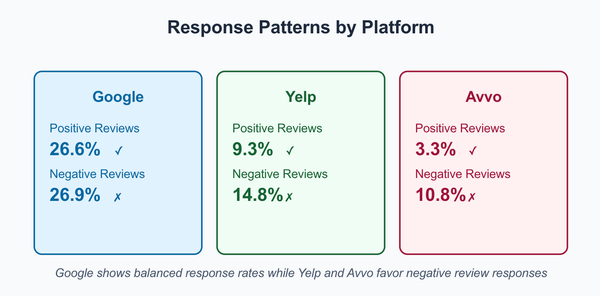How Real Estate Lawyers Affect Property Deals - Key Data

Real estate lawyers specialize in property-related matters, including transactions, title transfers, and dispute resolution between parties. With around 179,548 real estate lawyers available, these professionals help ensure smooth property transactions and guide clients through legal complexities to protect their rights.
Whether you’re a buyer, seller, or investor, a skilled property lawyer can make a critical difference in your property deal. This blog explores how real estate lawyers impact property deals, backed by key statistics, and when to hire a real estate attorney.
Understanding Real Estate Lawyers When Dealing with Real Estate
Real estate transactions involve complicated strategies, deal negotiation, title research, and closing process. A real estate lawyer or corporation provides legal know-how to guide customers through these steps, ensuring compliance with relevant property laws and protecting their rights.
Key Functions of Real Estate Lawyers:
- Dealing with purchase and sale contracts
- Conducting due diligence regarding property rights and territorial legal guidelines
- Management and supervision of final files
- Advice on real estate investments and disputes
Check out this blog to learn more about what real estate attorneys do.
Employment Landscape
As of recent data, there are over 7,165 real estate attorneys currently employed across the United States. This number reflects a specialized legal profession dedicated to addressing the unique challenges of real estate law. These attorneys represent clients in various matters, including property purchases, sales, leasing, zoning issues, and disputes. Their expertise is essential for both individual and corporate clients navigating real estate transactions.
The Primary Role of a Real Estate Lawyer
A real estate attorney plays a unique role at every stage of a property transaction. They assist in drafting, reviewing, and negotiating purchase agreements, ensuring each term is clear and fair. They confirm reputation checks for any liens or encumbrances that could complicate the transition. Hiring a real estate attorney for complex transactions could make the system more transparent and legally sound.
Note: It is advisable to consult a real estate law professional early in the transaction, especially for high-priced homes, commercial deals, or complex foreclosure situations such as zoning issues or title disputes, for a smoother process.
Invoicing and Fee Structures for a Real Estate Attorney
Real estate lawyers have many billing options, so clients need to understand how fees are structured. The most common billing strategies include hourly fees, flat-rate expenses, advance fees, and contingency fees.
Table: Real Estate Lawyer Billing Methods (Clio)
These flexible billing structures allow customers to choose the appropriate association based on their needs and economic scenario.
Key Statistics About Real Estate Attorneys in the Us
Real estate regulation remains a popular discipline because transactions are constantly in demand. According to the Bureau of Labor Statistics, employment of lawyers is expected to grow by 5% between 2022 and 2032.
Key data points:
- Legal breakdown by gender: 48.9% of real estate lawyers are women, while 51.1% are men.
- Market Demand: The developing demand for property attorneys shows an upward push in real estate investment and improvement tasks throughout the US.
- High Earning Potential: As of 2022, the median salary for real estate attorneys became approximately $135,740 per year, with top attorneys earning even better.
- Average Hourly Rate: According to current information, the average hourly rate for real estate attorneys in 2024 is $341, with variations by state.
To know more about how many real estate lawyers are there in your area, check this Lawyers Map.
State-Specific Data - Where Real Estate Law Is Most Prominent
States with dense urban populations and a robust real estate market certainly have more real estate law professionals. According to the National Association of REALTORS, the states with the highest number of lawyers per population include New York (9.6 per 1,000 population), Massachusetts (6.1), and Connecticut (5.8).
Table: States with Highest Lawyer Density (Per 1,000 Residents)
Due to the large number of property transactions, these areas provide enormous opportunities for actual property regulation companies.
Gender Diversity in Real Estate Law
Gender diversity among real estate lawyers continues to increase, with almost 1/2 of female practitioners. Additionally, law schools mirror this trend, with 55. 7% of students at US-regulated colleges identify as female. This shift toward inclusivity highlights the innovative destiny of actual real estate law firms that can benefit from diverse perspectives.
This stability in gender illustration is expected to bring various perspectives to the field, improve client relationships, and encourage innovation.
Age Demographics
According to Zippia, the average age of real estate attorneys is currently around 49 years, indicating a mature workforce with significant experience in the field. This demographic trend points to a wealth of knowledge and expertise that these professionals bring to their clients. It also raises questions about succession planning within law firms and the integration of younger attorneys into the practice.
Younger attorneys, particularly those in their 20s and 30s, represent only a small segment of the workforce. The majority, around 75%, are over the age of 40. This age distribution suggests that the industry may face challenges in attracting and retaining young talent, which could impact its future dynamics.
Turnover and Employment Trends
The turnover rate among real estate attorneys can provide insights into job satisfaction and career stability within the profession. Data indicates (resource -Thomson reuters) that many attorneys stay in their positions for less than one year, with 14% reporting such tenure. A significant portion, about 33%, remain in their roles for 1-2 years, while others have longer tenures.
These statistics suggest that while some attorneys may find their roles rewarding, others might seek new opportunities due to various factors, including job satisfaction, work-life balance, or career advancement prospects. Firms and organizations must prioritize employee engagement and professional development to reduce turnover and retain talent.
How to Check if a Real Estate Lawyer is Trustworthy?
To make sure you hire a good real estate lawyer, follow these steps:
- Check the State Bar Association: Make sure the lawyer is licensed and has a good reputation with no complaints against them.
- Read Online Reviews: Look for comments from past clients on websites like Avvo or Martindale-Hubbell to see their opinions.
- Ask for References: A reliable lawyer should be able to provide names of previous clients who can talk about their experiences.
- Review Experience and Skills: Visit the lawyer's website or LinkedIn profile to find out about their background in real estate law and any important cases they've worked on.
- Membership in Professional Groups: Lawyers who belong to respected organizations, like the American Bar Association’s Real Property Division, usually show they are credible and knowledgeable.
When to Hire a Real Estate Attorney?
The actual involvement of a real estate lawyer in property transactions can significantly enhance the security and transparency of the method. Their expertise mitigates risk and ensures compliance with complex prison requirements, which is especially valued in high-stakes real estate transactions.
The involvement of a real estate lawyer in property transactions can greatly enhance the security and transparency of the process. Their expertise helps mitigate risks and ensures compliance with complex legal requirements, which is particularly valuable in high-stakes real estate deals.
Top reasons to hire a real estate attorney:
- Complex transactions: Commercial real estate, significant investments, and assets with complex crimes (e.g., zoning issues).
- Legal disputes: Property disputes, border matters, and litigation.
- Expert advice: First-time buyers, traders, and developers can benefit from crime know-how.
Let's Recap
Real estate lawyers make transitions smoother and more stable in property listings. Understanding them allows customers to hold back on complicated paperwork, prevents jail time, and ensures all steps comply with the law. Whether buying, promoting, or investing, having an asset lawyer on your side can make a huge difference, especially when defending your interests.
Anyone looking to connect with qualified prison specialists must visit Lawyersrating.fyi, we're connecting you with America's top legal talent in search of justice and exemplary criminal representation. Our commitment is to provide easy access to legal advice from the most talented lawyers in many specialties.





